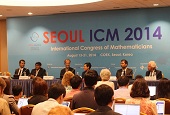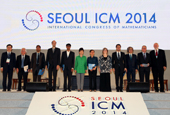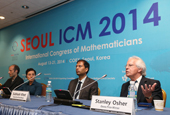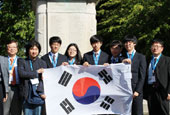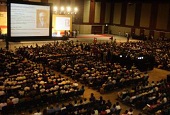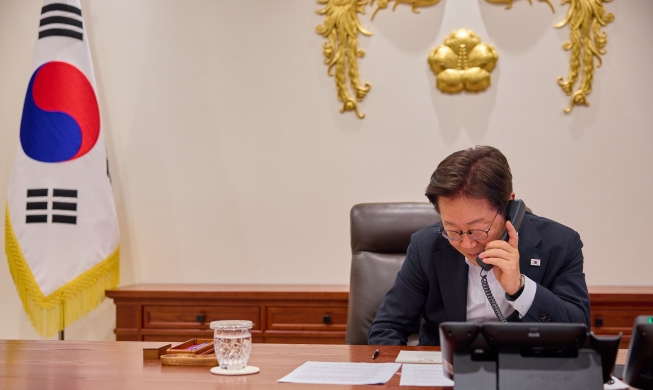Recently, mathematicians competed in Go matches against professional Go players.
On August 19, a total of 25 mathematicians gathered in Seoul from nine countries -- Korea, China, Japan, U.S., Australia, Israel, Germany, UK and Macedonia -- to play simultaneous matches against a group of Korea's renowned professional Go players. The professionals, widely known in Korea, were Seo Bong-soo, Yoo Chang-hyuk, Lee Chang-ho and more.
The games were carried out in the form of "one Go player to many mathematicians," where the player played a number of different games at the same time. Explanations and commentaries were simultaneously translated into English, targeting a worldwide audience.
What kind of results would you expect from Go matches between mathematicians and Go players? The answer is clear. The Go players achieved an overwhelming victory. Player Lee Chang-ho, with a 9-dan ranking, earned five wins while four other players including Seo Bong-soo and Yoo Chang-hyuck won a victory in each game, for a total of four wins.
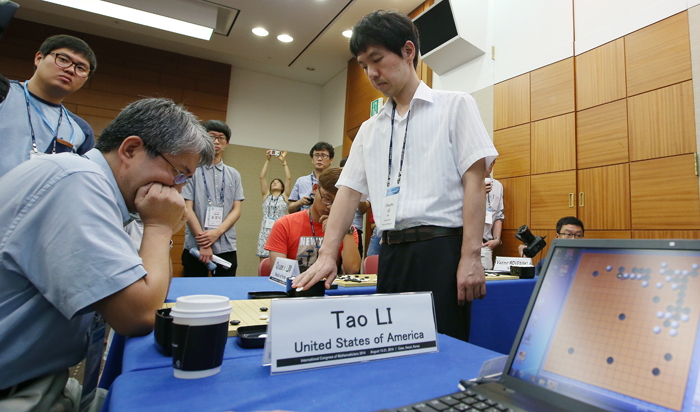
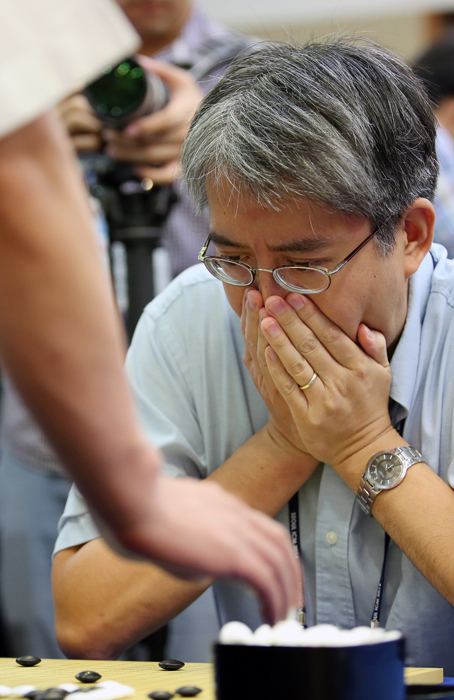
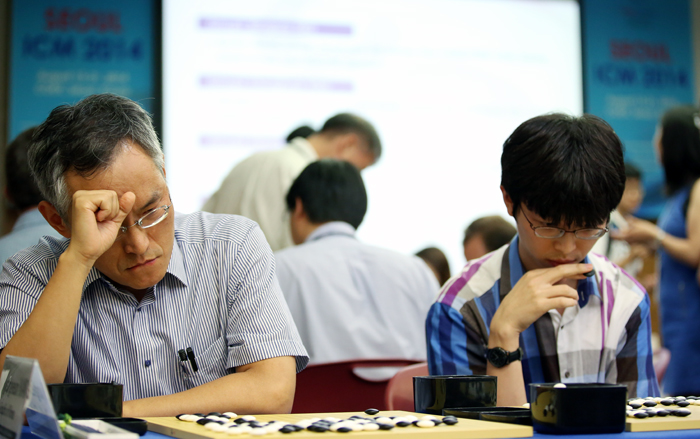
"Go" is a game played by two players who alternately place black and white playing pieces, called "stones," on a grid of black lines, normally 19 verticals and 19 horizontals. The objective of the game is to surround a larger total area of the board faster than the opponent. The rules are simple but the possibilities that can result are quite diverse.
The idea of the match came from an inquiry about whether "Combinatorial Game Theory," a study of applied mathematics and theoretical computer science, can raise the chances of winning Go games. For a long time, the mathematical community believed the answer to be yes.
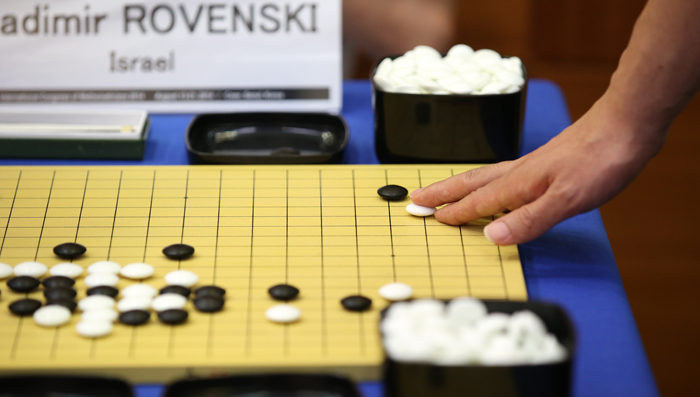
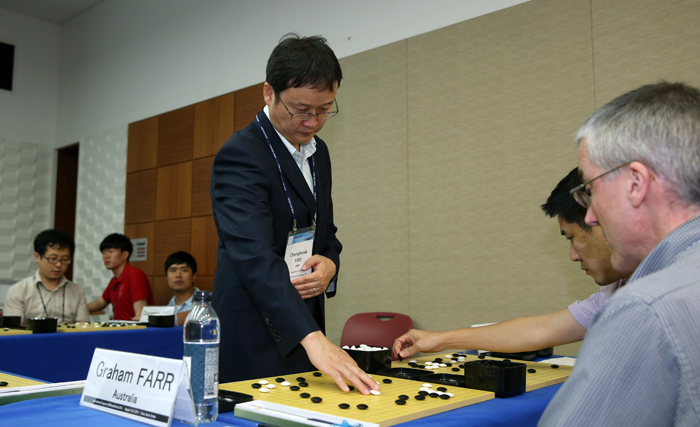
The Go battles are part of the program of the 2014 Seoul International Congress of Mathematicians (ICM) event that opened on August 13. In a bid to help people and young students get familiar with mathematics, the congress offers a wide variety of programs -- lectures by professional mathematicians, panel discussions and cultural offerings.
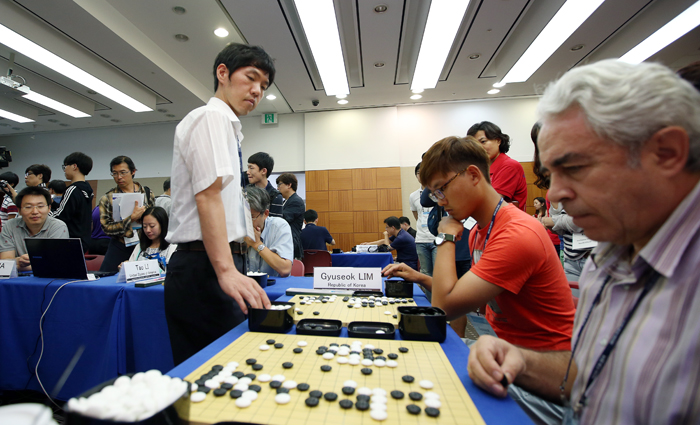
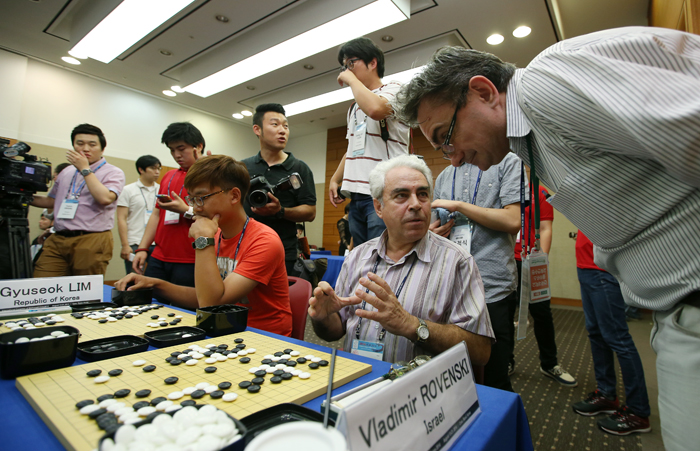
The mathematical congress, often regarded as the Olympics of mathematics, was hosted by Korea for the first time and was attended by around 5,200 mathematicians from 122 countries and more than 20,000 participants.
Park Hyung-ju, chair of the Seoul ICM organizing committee, said, "The congress is expected to bring quality development of mathematics and a favorable learning environment to Korea. At the same time, it was a great opportunity for worldwide mathematicians to share academic information through discussion sessions and to form and expand their networks."
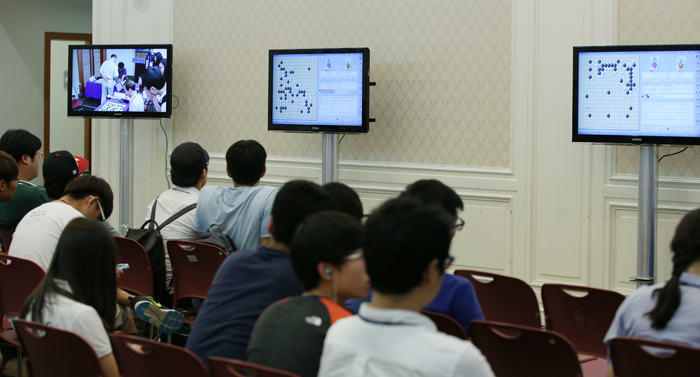
By Lee Jeong-rok, Lee Seung-ah
Photographed by Jeon Han
Korea.net Staff Writers
Jeongrok@korea.kr
On August 19, a total of 25 mathematicians gathered in Seoul from nine countries -- Korea, China, Japan, U.S., Australia, Israel, Germany, UK and Macedonia -- to play simultaneous matches against a group of Korea's renowned professional Go players. The professionals, widely known in Korea, were Seo Bong-soo, Yoo Chang-hyuk, Lee Chang-ho and more.
The games were carried out in the form of "one Go player to many mathematicians," where the player played a number of different games at the same time. Explanations and commentaries were simultaneously translated into English, targeting a worldwide audience.
What kind of results would you expect from Go matches between mathematicians and Go players? The answer is clear. The Go players achieved an overwhelming victory. Player Lee Chang-ho, with a 9-dan ranking, earned five wins while four other players including Seo Bong-soo and Yoo Chang-hyuck won a victory in each game, for a total of four wins.

Go player Lee Chang-ho (right) participates in the one-to-many games.

Tao Li, a participant from the U.S., ponders over what to do next in a game against Lee Chang-ho.

Two participants decide on the next step in a game against Lee Chang-ho.
"Go" is a game played by two players who alternately place black and white playing pieces, called "stones," on a grid of black lines, normally 19 verticals and 19 horizontals. The objective of the game is to surround a larger total area of the board faster than the opponent. The rules are simple but the possibilities that can result are quite diverse.
The idea of the match came from an inquiry about whether "Combinatorial Game Theory," a study of applied mathematics and theoretical computer science, can raise the chances of winning Go games. For a long time, the mathematical community believed the answer to be yes.


Yoo Chang-hyuk, with a 9-dan ranking, plays Go in one of the one-to-many games.
The Go battles are part of the program of the 2014 Seoul International Congress of Mathematicians (ICM) event that opened on August 13. In a bid to help people and young students get familiar with mathematics, the congress offers a wide variety of programs -- lectures by professional mathematicians, panel discussions and cultural offerings.


Vladimir Rovenski, a participant hailing from Israel, explains to his friend the current state of play in a game against Lee Chang-ho.
The mathematical congress, often regarded as the Olympics of mathematics, was hosted by Korea for the first time and was attended by around 5,200 mathematicians from 122 countries and more than 20,000 participants.
Park Hyung-ju, chair of the Seoul ICM organizing committee, said, "The congress is expected to bring quality development of mathematics and a favorable learning environment to Korea. At the same time, it was a great opportunity for worldwide mathematicians to share academic information through discussion sessions and to form and expand their networks."

Those not able to get through to where the competition takes place watch games through screens installed outside the hall.
By Lee Jeong-rok, Lee Seung-ah
Photographed by Jeon Han
Korea.net Staff Writers
Jeongrok@korea.kr
Related Contents
Most popular
- Songs from 'KPop Demon Hunters' dominate global Billboard charts
- Council sets minimum hourly wage in 2026 at KRW 10,320
- 28th annual Boryeong Mud Festival to offer more night events
- Songs from animated K-pop film rule Spotify daily chart in US
- Exhibition 'K-Comics World' hawks webtoons in 5 countries
